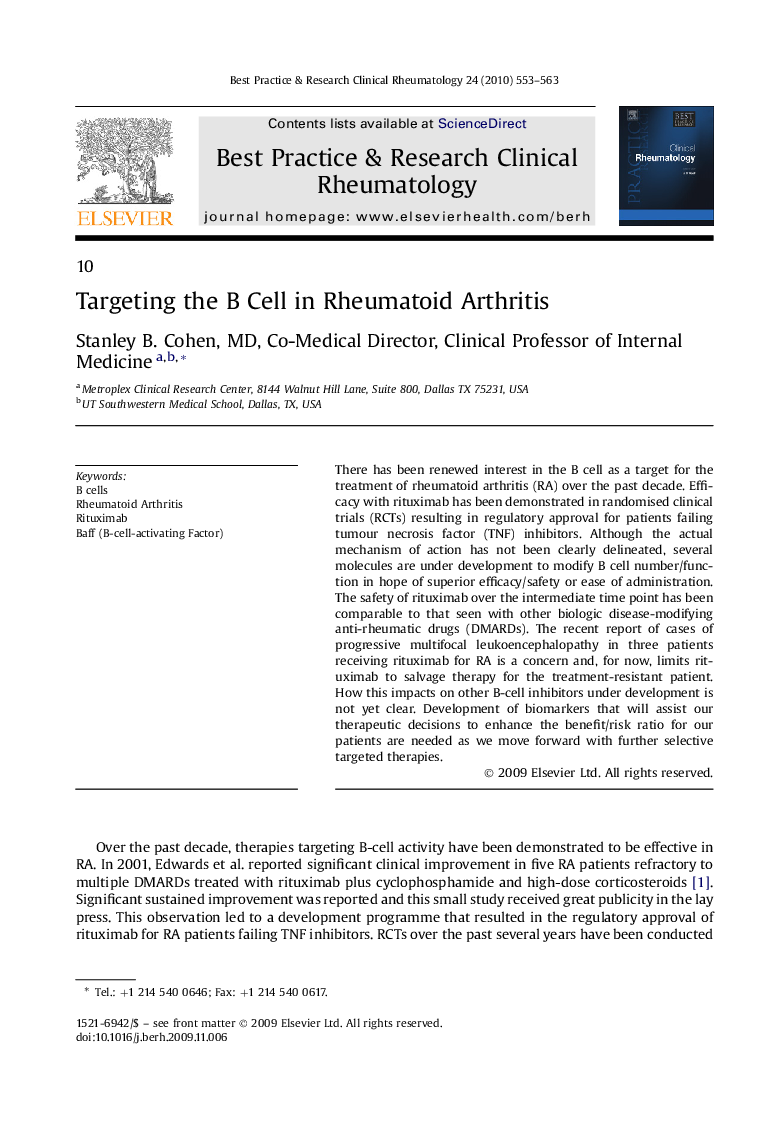| Article ID | Journal | Published Year | Pages | File Type |
|---|---|---|---|---|
| 3342990 | Best Practice & Research Clinical Rheumatology | 2010 | 11 Pages |
There has been renewed interest in the B cell as a target for the treatment of rheumatoid arthritis (RA) over the past decade. Efficacy with rituximab has been demonstrated in randomised clinical trials (RCTs) resulting in regulatory approval for patients failing tumour necrosis factor (TNF) inhibitors. Although the actual mechanism of action has not been clearly delineated, several molecules are under development to modify B cell number/function in hope of superior efficacy/safety or ease of administration. The safety of rituximab over the intermediate time point has been comparable to that seen with other biologic disease-modifying anti-rheumatic drugs (DMARDs). The recent report of cases of progressive multifocal leukoencephalopathy in three patients receiving rituximab for RA is a concern and, for now, limits rituximab to salvage therapy for the treatment-resistant patient. How this impacts on other B-cell inhibitors under development is not yet clear. Development of biomarkers that will assist our therapeutic decisions to enhance the benefit/risk ratio for our patients are needed as we move forward with further selective targeted therapies.
